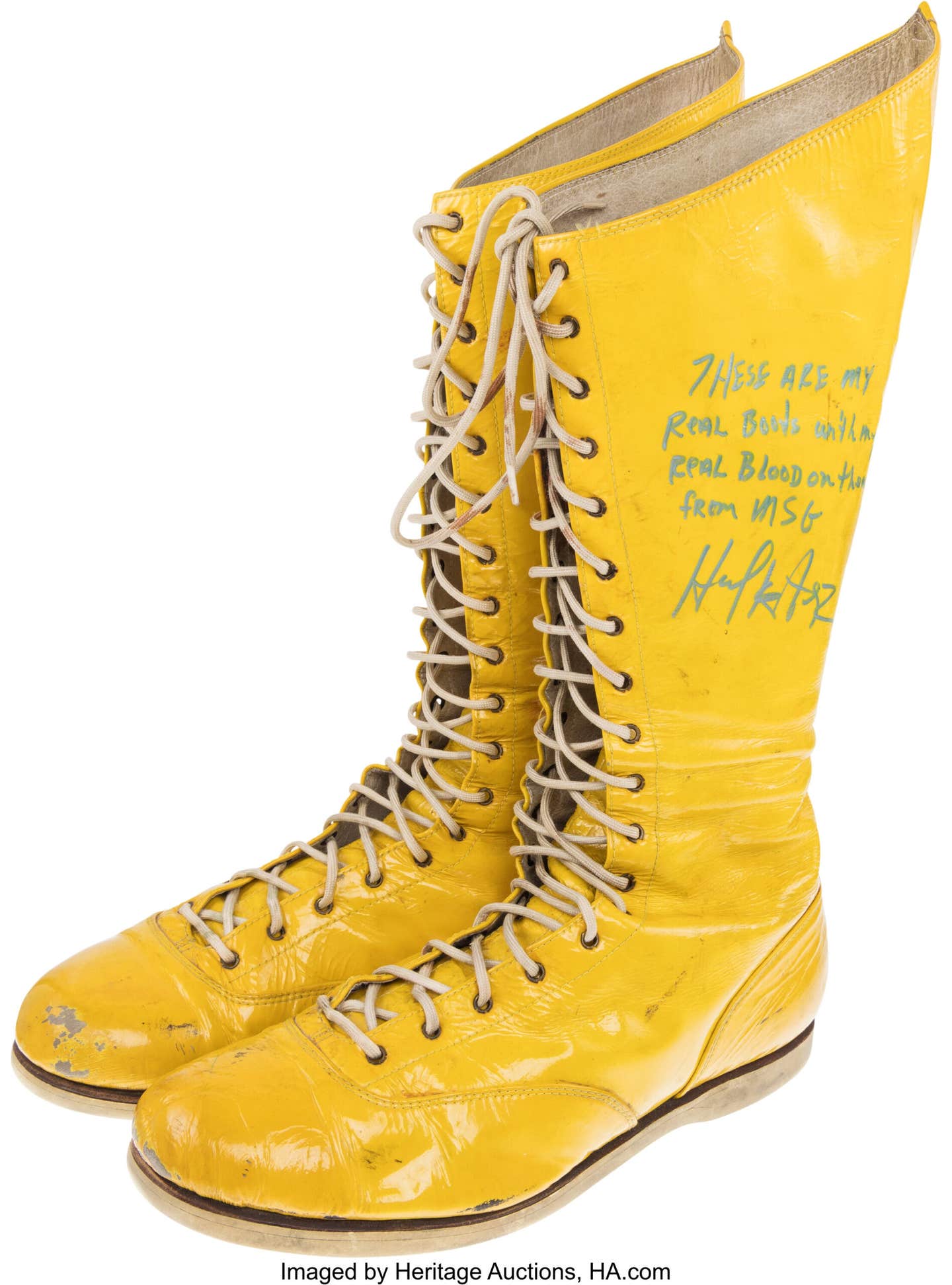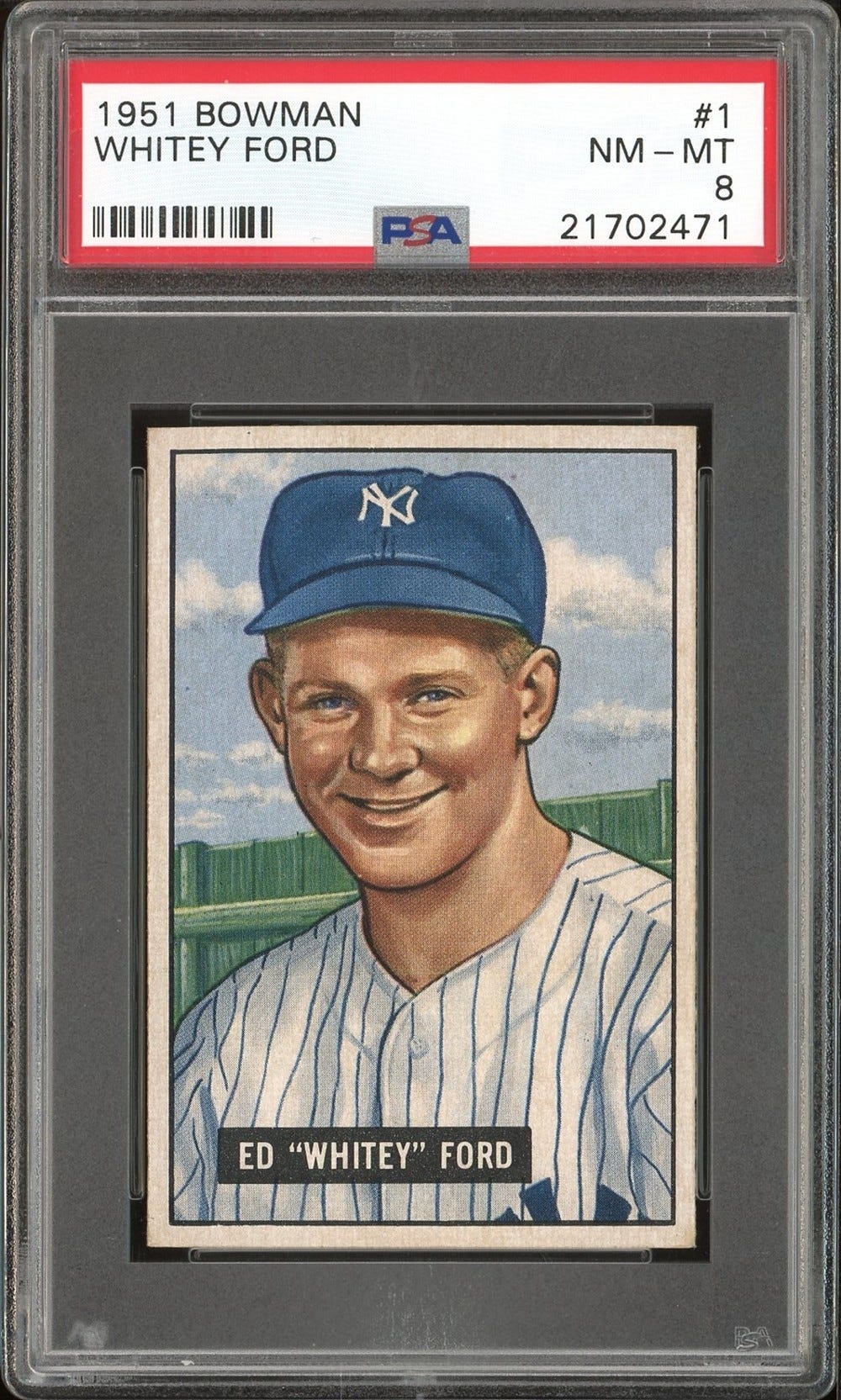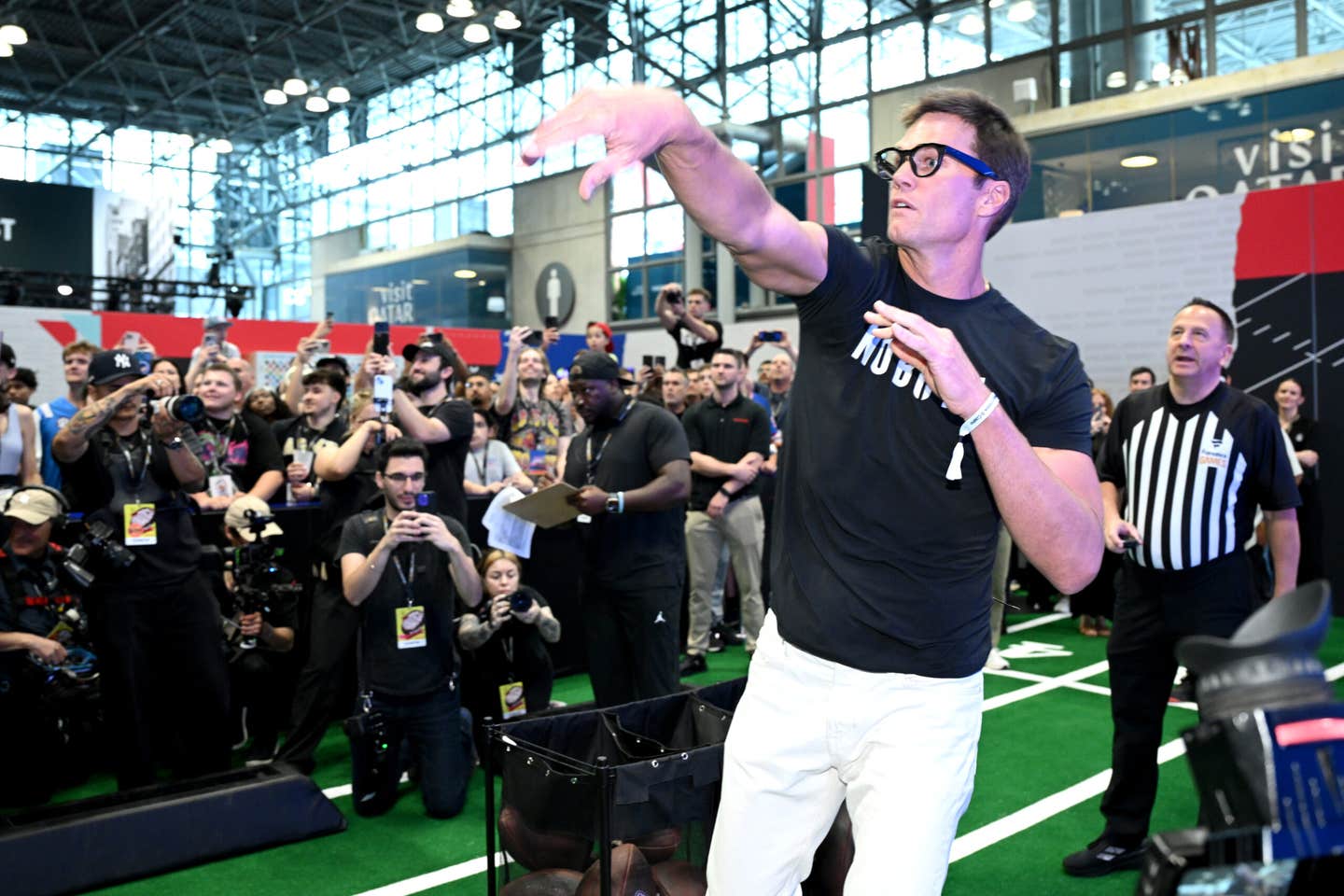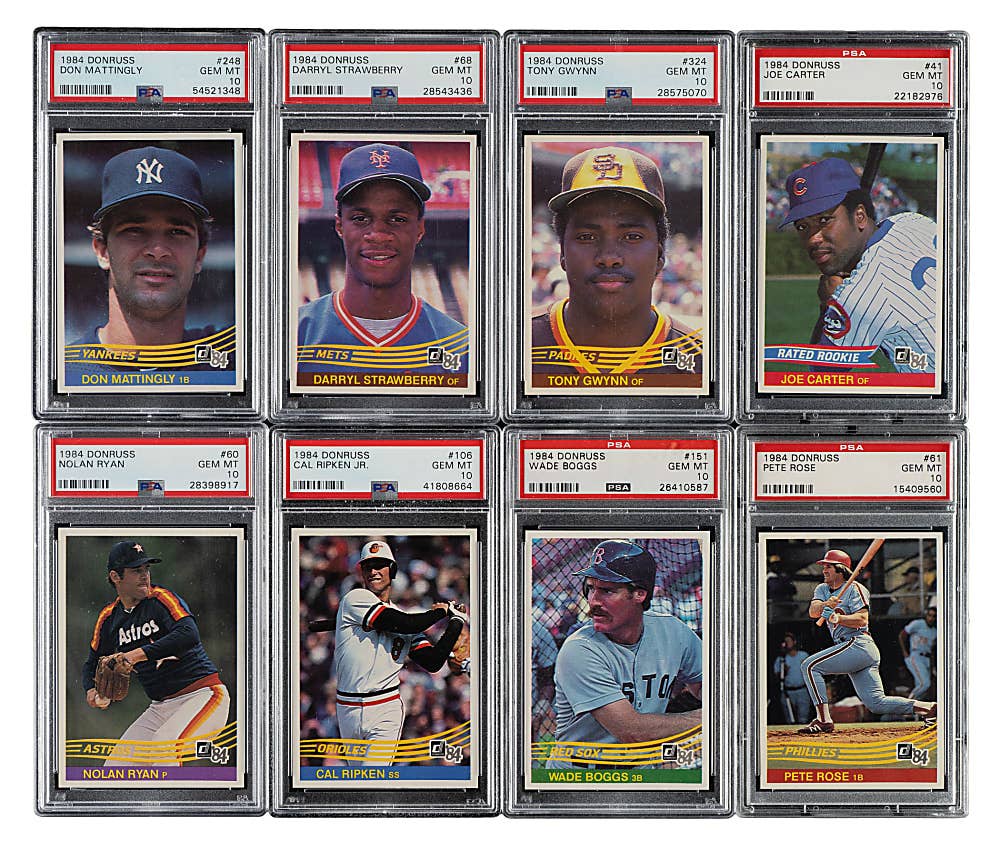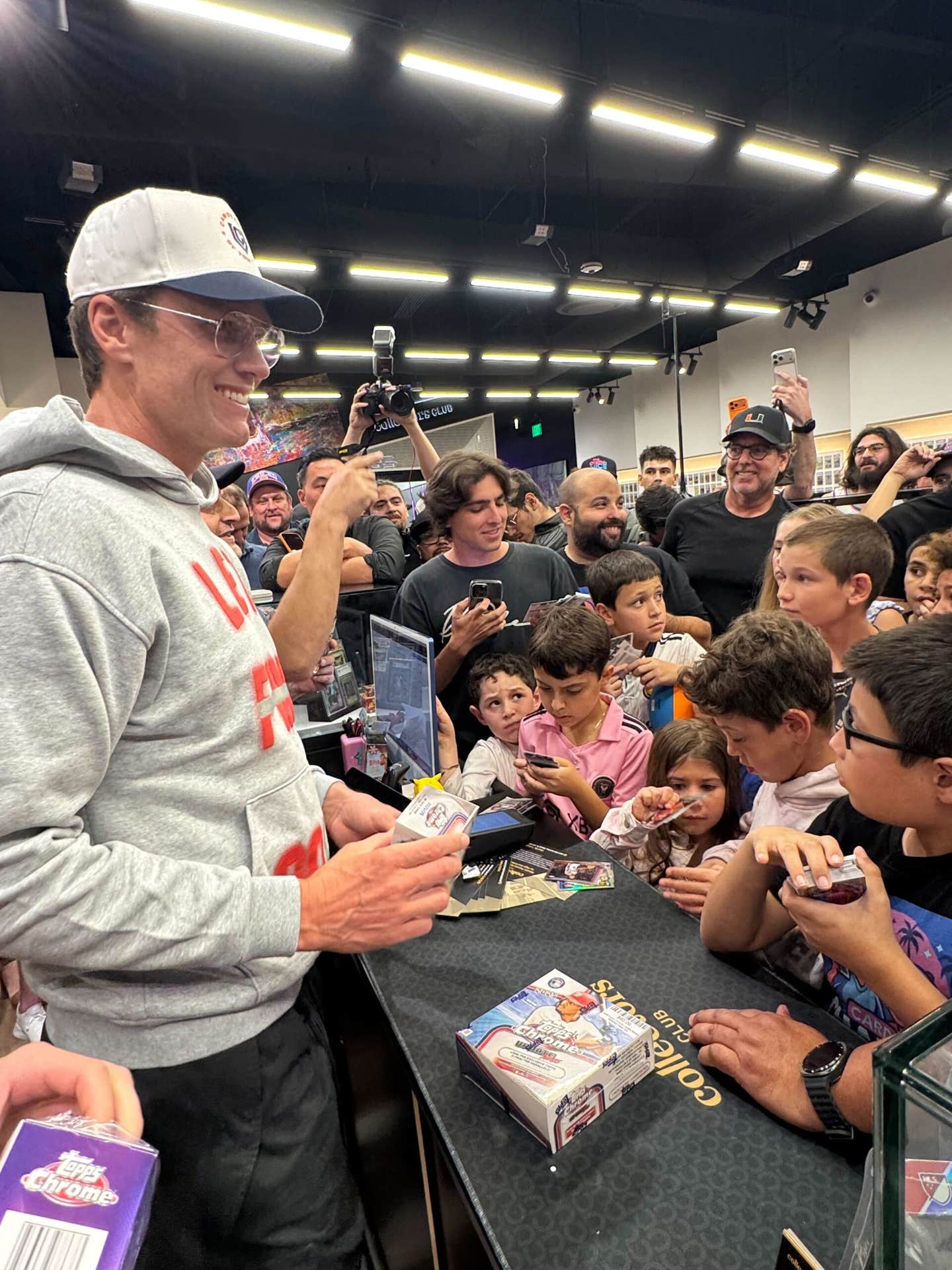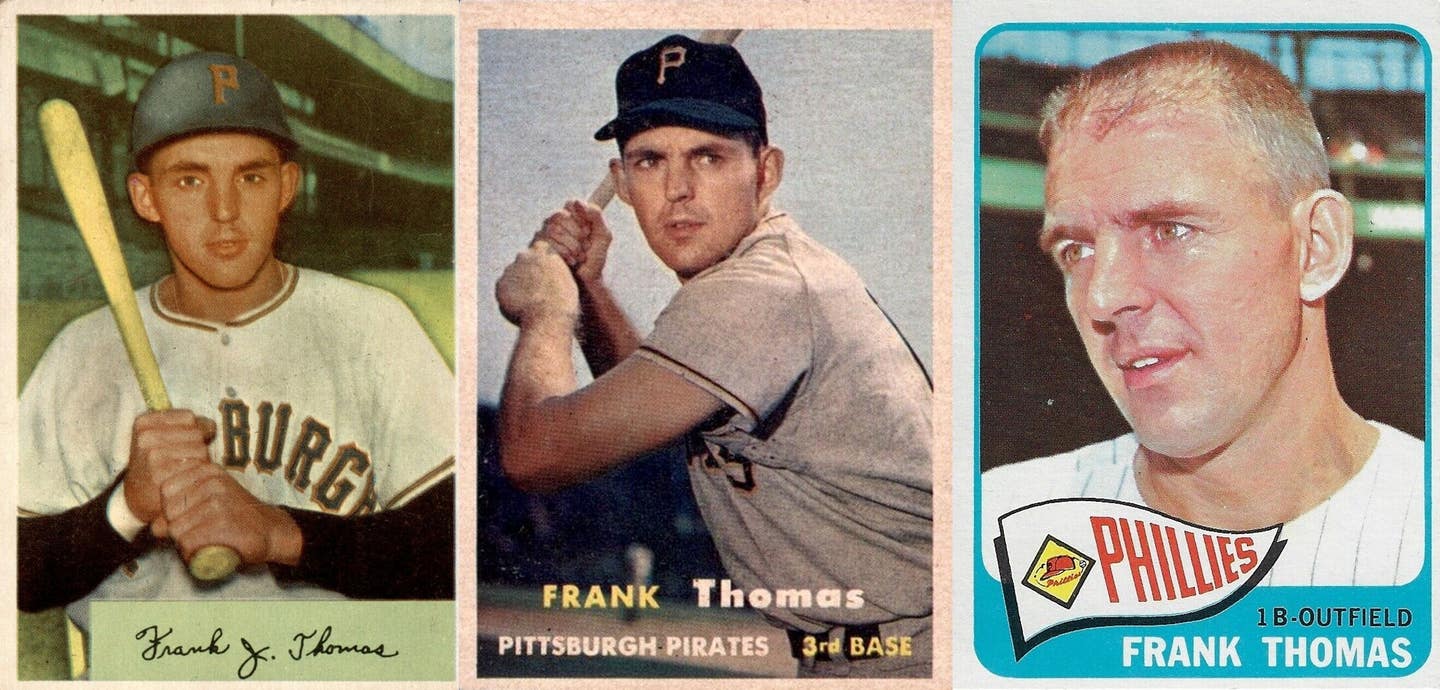
News
1950s Pirates star Frank Thomas remembered as a charitable, fan-friendly card collector
Former MLB player and Pirates star Frank Thomas passed away at age 93 on Jan. 16. I count myself among the many collectors who had the opportunity to talk with him.
Thomas played in the majors for 16 years and retained detailed memories of his baseball career. Fans described him as approachable and happy to share his stories. He was also a baseball card collector and was still adding to his collection until selling it a few years ago.
I interviewed Thomas in November 2021 and he followed our conversations with letters and photos. He was generous and friendly. By several accounts, he could also be argumentative and outspoken, reminding one of Clint Eastwood’s crusty Walt Kowalski character in the movie “Gran Torino.”
I called Thomas to see if I could resurrect the idea of putting together a theoretical game between National and American League teams of the oldest living players who had appeared on baseball cards.
He appreciated being selected for my National League squad and joked about playing until he was 100. He confessed that although he had stayed in fairly good shape over the years, his lower legs had not been cooperating lately; he mentioned his eyesight and arthritis weren’t exactly assets either.
Thomas was born June 11, 1929, the son of Bronaslaus Tumas, who had immigrated from Lithuania and had lost an arm in a work accident. As a kid, Thomas collected baseball cards and excelled playing sports. He thought he might become a priest and went into the seminary for high school at Mount Carmel College. However, sports and family won out over the priesthood.
Thomas was signed by Pittsburgh and played for Class D Tallahassee in 1948. He was paid $150 per month, or $750 for the year. One year in the minors he saved $900. Thomas had a good recollection of numbers and never threw his money around.
In 1950 and 1951 he played with Double-A New Orleans, started to hit the long ball, made the league All-Star team and was called up to Pittsburgh for 39 games in 1951. He married Dolores Wozniak in 1951. In 1953 he was in the majors to stay and hit 30 homers and had 102 RBIs as the centerfielder for the Pirates. After the season, he personally negotiated with “management” (Thomas didn’t want me to even mention the name Branch Rickey) to get his salary bumped to $15,000 per year. He settled for $12,500.
Bowman signed players back then to appear on trading cards. Thomas signed with Bowman, probably in 1950 or 1951 at Spring Training, before Topps got into the picture. He appeared on Bowman cards in 1954 and 1955 until Topps took over in 1956. He had the option of getting cash each year (around $125) or taking a gift. He opted for the lawn furniture in the Topps catalog. He met Sy Berger and stayed in touch with him to obtain complete card sets each year.
In his first full year in the majors in 1953, Thomas was the centerfielder and team slugger (following Ralph Kiner’s June 4 trade to the Cubs). You would think that collectors would have been clamoring for his first card. However, Bowman had the rights to Thomas and Topps was dodging litigation with Bowman over signed players.
Thomas didn’t get his rookie card with Bowman until 1954. Thereafter, though, he got into most of the assorted card issues through 1965. He was happy to appear on cards, and was featured on Dan-Dee, Red Man, Hires, Jay Publishing, Armour and Salada coins, Exhibit, Post, Jello, Kahn’s, team issues and later in Topps, TCMA, Upper Deck and other retro issues.
He vowed that if he made the majors, he would always sign autographs for kids at the ballparks. He felt he “owed it to the fans, whether they booed him or clapped.”
Thomas was a competitive player, had eight children and seemed to struggle with management to be paid what he felt he deserved. He spent eight years with the Pirates but then bumped around with six teams for the next eight years. He hit 286 homers, had 962 RBIs and had a .266 lifetime average.
After being released by the Cubs in 1966, Thomas considered playing in Japan, but they wouldn’t let him take his family along, so he dropped the idea. He said he contacted 25 major league teams to look for work as a scout or coach without any luck. Steelers announcer Joe Tucker gave him a good lead, though, which was the ICM School of Business. He was hired by ICM as a liaison with area high schools. He spent the next 18 years making school visits to talk to students and faculty. He felt they appreciated his honest approach.
After retiring in 1984, Thomas continued to be active in charity golf tournaments, old-timers’ games and card show appearances. He recalled his first card show as being in New York, where he played from 1962-64 and was remembered for being a slugger on the original Mets.
Thomas stored his card collection under his bed. A house fire in 1992 destroyed the cards as well as about half of his house. However, to his surprise, many collectors, including SCD readers, contacted him to help rebuild his collection card by card working off a list of his needs.
He contacted Topps Vice President Sy Berger who helped him pick up some of the more recent sets. He eventually put together complete sets again from 1952 on except for eight 1952 high numbers, which he could rattle off from memory.
I contacted a few collectors who helped Thomas rebuild his collection.
“I first met Frank at a charity golf tournament, and when I heard of his want list, I managed to dig up a few cards for him,” Anson Whaley recalled. “I mentioned that I was starting to collect autographs a little. It was a very off-the-cuff remark. A few weeks later, there's this large envelope in the mailbox from him full of over 200 autographed cuts and index cards of players across the 1960s and 1970s. That's the kind of guy he was — overly generous and thoughtful. He loved meeting fans and raising money for his charities.”
“I was able to send him some hits to his want lists,” collector Neal Thomas said. “I was not looking for anything in return, but he sent me a number of autographed cards, and we started a correspondence. It ended up with signed cards for my three sons and an invitation to visit him to try and determine if we were long lost relatives. [He was] truly a great guy, with tons of great stories.”
Collector Mark Talbot recalled: “I had many interactions over the years. Frank always wrote back with a handwritten note that got harder and harder to read over time. I pulled 1952 high numbers from my collection to send to Frank; he was gracious as usual and sent back some autographs. Frank wrote me about baseball, of course, but was just as open about family, work, his faith and just about anything we were writing about.”
Mick Rich added: “Frank was set up at a Robert Morris show autographing for a donation to a charity. I was able to pull up a chair and have a conversation with him. He felt it was important to help others, hence his signing for charity. He got nothing for his appearance, and it actually cost him to have someone drive him there. One of the most pleasant autographs I ever received.”
“My family and I were driving east in 2016. We stopped in Pittsburgh to meet Frank for dinner. Frank was such a nice person,” TJ Valacak recalled. “He was interested in hearing my kids talk about their sports and school. He brought autographed cards for the kids and shared many stories of his playing days.”
In 2012, his wife Dolores (“Dodo”) died, and shortly thereafter he sold his collection. Due to the pandemic, there weren’t too many card show opportunities for Thomas in the last few years, and he no longer drove. Thomas was aware that he was on several lists of the oldest living former major leaguers and joked, “That is a list you can only go up on, never down.”
He donated money from autographs and photos to Camp Happy Days, Kids Kickin' Cancer and Courageous Kidz. His mailman at his 110-unit retirement complex told him he got more mail each day than the rest of the people in the building combined.
— George Vrechek is a freelance contributor to Sports Collectors Digest and can be contacted at vrechek@ameritech.net.



